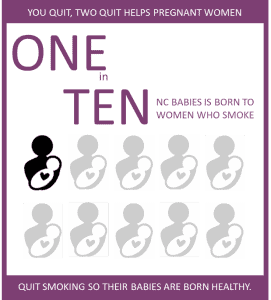By Kella Hatcher
 The North Carolina Child Fatality Task Force (CFTF) recently submitted its 2017 Action Agenda to the Governor and General Assembly containing policy and funding recommendations focused on reducing child deaths, preventing abuse and neglect, and supporting the safety and well-being of North Carolina’s children.
The North Carolina Child Fatality Task Force (CFTF) recently submitted its 2017 Action Agenda to the Governor and General Assembly containing policy and funding recommendations focused on reducing child deaths, preventing abuse and neglect, and supporting the safety and well-being of North Carolina’s children.
We’ve said that the 2017 Action Agenda for the Child Fatality Task is “bold.” It recommends funding for a broad range of initiatives during a time when state funding is hard to come by. It seeks changes in public policy that would impact schools, newborn screening, traffic laws, and the overabundance of opioids. It addresses threats to child well-being that we read about in the paper every day like suicide, child maltreatment, and motor vehicle crashes, but it also asks state leaders to support programs and initiatives that many will be learning of for the first time. In these respects, the 2017 CFTF agenda is indeed bold.
But if we think about this agenda outside of the context of legislative challenges, is it really that bold? Is a parent being “bold” when she makes sure her child gets life-saving medical treatment or prioritizes her child’s health and safety no matter what the circumstances? How bold is it to ask for changes in laws, policies, and public funding to save kids’ lives and support their well-being when it is simultaneously critical, expected, and responsible to do just that?
In so many ways, the 2017 CFTF Action Agenda is downright modest in that its recommendations seek relatively small changes and small amounts of funding to achieve results that are literally life-changing and life-saving.
For example, a recommendation for $250,000 in funding for a program that addresses tobacco use during pregnancy seems quite modest when you consider that tobacco use during pregnancy is directly associated with the top four causes of infant mortality in North Carolina, and that we still have a tenth of babies in our state born to women who smoked during pregnancy. Addressing tobacco use among this population is critical because if pregnant women did not use tobacco the overall infant mortality rate for the state would drop an estimated 10 to 20 percent.
A set of four recommendations on the 2017 CFTF agenda address youth suicide, which, troublingly, is happening more and more frequently nationwide. These recommendations grew from the work of a group of suicide prevention experts and agency representatives convened by the CFTF. One recommendation is for school personnel who interact with kids to annually engage in two hours of training that would help them identify and refer kids who may be at risk to appropriate interventions, and for schools to have protocols for responding to these kids – two relatively small changes for potentially life-saving results.
Another recommendation addresses the huge shortage of school nurses in our state by funding fifty new positions. School nurses play a much bigger role in mental health counseling and suicide prevention than most realize, counseling thousands on suicide ideation and other mental health issues in any given year. This recommendation of $2.5 million to add 50 school nurses in high need communities is modest indeed, when considering that North Carolina is nearly 600 nurses short of meeting the nationally recommended ratio of school nurses per student. Some schools currently have a nurse present only one-half day per week even as students experience physical and mental health problems the other 4.5 days without access to a nurse whose presence could be life-saving.
The “bold” CFTF agenda also includes $50,000 in funding for a non-controversial firearm safety initiative, $725,000 for a program to identify and assist child victims of abuse and neglect, and $120,000 for safe drug disposal, a simple but effective strategy to address the opioid epidemic that is plaguing North Carolina.
While the CFTF 2017 legislative agenda may be bold in terms of its breadth and depth, it is actually quite modest when considering the enormity of the issues that threaten the lives and well-being of North Carolina’s children, and the life-saving impact of relatively small changes and minimal financial investments. North Carolina’s children are our future, and public policy that strengthens our ability to protect them from harm, to support their well-being, to do what we can to help them reach adulthood is worthy of the highest degree of attention and priority from state leaders.
[The recommendations highlighted in this blog are a few of many on the CFTF’s 2017 Action Agenda. You can learn more about the Action Agenda here, and about the Child Fatality Task Force here.]
Kella Hatcher is the executive director of the North Carolina Child Fatality Task Force.
